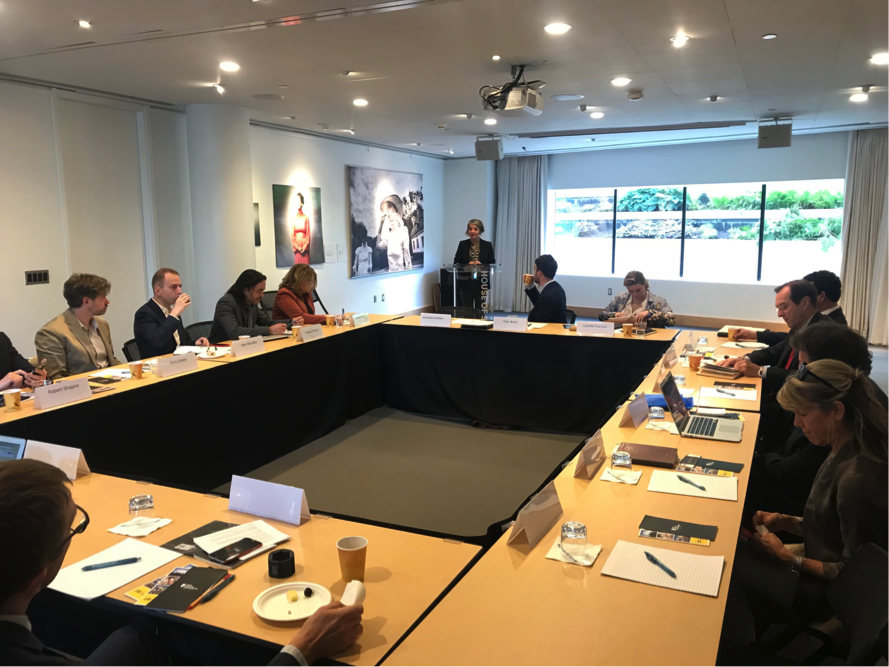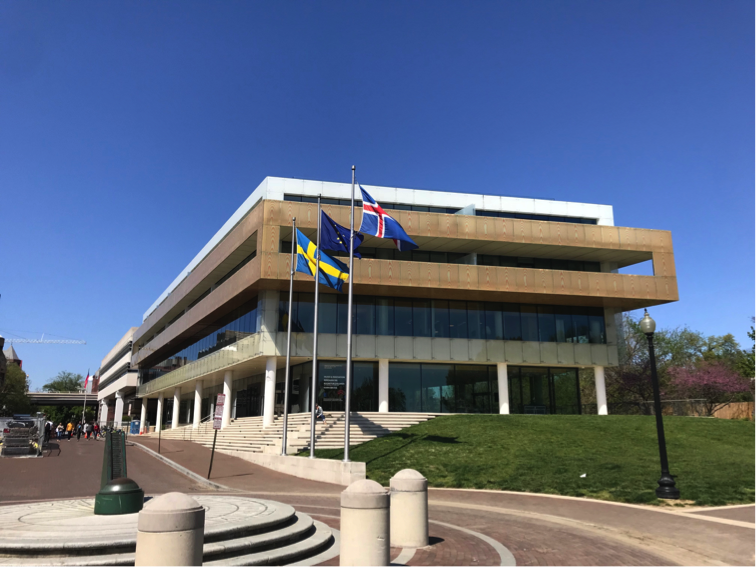Countering Innovative Repression

The concept of innovation is generally imbued with positive connotations, but often overlooked is the fact that governments are also innovative. Around the world, repressive governments are pouring immense resources into developing new ways to strengthen their hold on power, deny people their basic rights, and suppress civil society before it becomes strong enough to challenge them.
Innovative ways in which governments leverage social media tools to censor and harass, or restrict peaceful assembly and protest are spreading. These are new or changing challenges that Civil Rights Defenders’ partners around the world face every day as they defend human rights.
To discuss how to address this, the Embassy of Sweden in the United States and Civil Rights Defenders hosted a roundtable event at the House of Sweden in Washington D.C. on April 30, 2018. The topic of discussion was “Countering Innovative Repression”, and the goal was to jointly assess the challenges and what’s being done to meet them, and to identify opportunities for collaboration. Participants included representatives from major tech companies, experts on human rights and technology, as well as civic and policy leaders.
Two overarching trends identified in the discussion were that governments are increasingly introducing new initiatives that restrict the ability of civil society to operate, and that governments are using the internet, and the connectivity it provides, as a repressive tool in new or unexpected ways.
Restrictions on civil society are on the rise globally. These include increasing restrictions on the ability to form or operate civil society groups, restrictions on cross border funding, and restrictions on peaceful assembly and protest. For example, Russia’s foreign agent law, or laws that dramatically increase the cost of registering a civil society organisation, make it difficult to start and sustain a civil society group. Worryingly, many countries that have a record of broadly respecting civil and political rights have also begun copying such legislation.
The discussion more extensively covered the challenges now faced because of how governments use the internet, and the connectivity it provides, as a tool of repression. Online censorship and harassment have become major features of how governments go after human rights defenders, and misinformation is increasingly undermining our ability to clearly distinguish what’s true from what isn’t. A proposed useful concept for breaking down the challenge is to think of it in terms of the signal and the noise. We must protect and amplify the signal, in the form of legitimate content and reporting, while preventing noise, in the form of misinformation or false amplification, from drowning, obfuscating, or redirecting attention away from the signal.
Particularly concerning examples of government use of the internet as a tool for repression that came up during the discussion are the increased use of complete shutdowns of internet connectivity when there are civil disturbances, to isolate people from one another and prevent the dissemination of information about what is going on, and that governments are getting more access to better surveillance technology. That includes relatively low-cost tools for hacking into end user devices like phones, meaning that even if the platforms and the companies who produce the devices or software want to protect users, governments often still have a way to get in.
Picking up on new developments of how technology is being used to manipulate, repress, or distort early-on is an important task, because we often end up missing these changes until they become a major problem. A key factor for successfully identifying new developments like these is listening to those with their ears on the ground, especially the reporters and human rights defenders who are closest to what is going on, and investing in ways to connect with them and amplify what they have to say.
Because of the precarious situation they are in, human rights defenders at risk and journalists or media outlets providing alternative information to state-sanctioned media, are an opportunity to pilot advanced protection tools or procedures. That comes with the dual benefit that they are better protected, while the innovations are also tested against sophisticated adversaries, or under tough conditions.

Companies providing platforms for content and connectivity, when operating in countries that are increasingly repressive, are choosing controversial approaches that “maximize space for expression”. When faced with the choice of either shutting down operations in a country or complying with demands to remove content or restrict access, they are likely to choose the latter. A major responsibility companies have is to resist such efforts to the greatest extent possible, and to put restrictions into place transparently by disclosing when this has happened. Similarly, companies need to consider how their tools can be abused to violate human rights and call out governments who abuse their tools. It is a major problem if companies, while in pursuit of expanded access and profits, are captured and used by governments for repression.
There was also disagreement over whether a multi-stakeholder approach across sectors is the right way to meet many of these challenges, since companies have learned how to manipulate processes like these. That arguably subverts democratic institutions whose responsibility it is to protect the rights of their citizens.
At the same time, multi-stakeholder approaches in which civil society groups advocating for respect for human rights are a part of the process can lead to better outcomes. When civil society groups are at the table, they can hold accountable and provide backing for companies when pointing to basic human rights as a reason to resist requests for censorship. Collaboration between business and civil society is also important for providing better and streamlined processes for human rights defenders with respect to the companies whose tools they rely on. For example, it can help address situations in which human rights defenders, or other important groups, suddenly lose access to vital tools without a clear way to restore the access.
We want to thank the Embassy of Sweden for hosting the event, and all who participated in the discussion, as well as the Swedish Postcode Lottery for providing the funding that made this event possible. Collectively we gained a better understanding of current and future challenges, our own responsibilities, and what can be done going forward.


